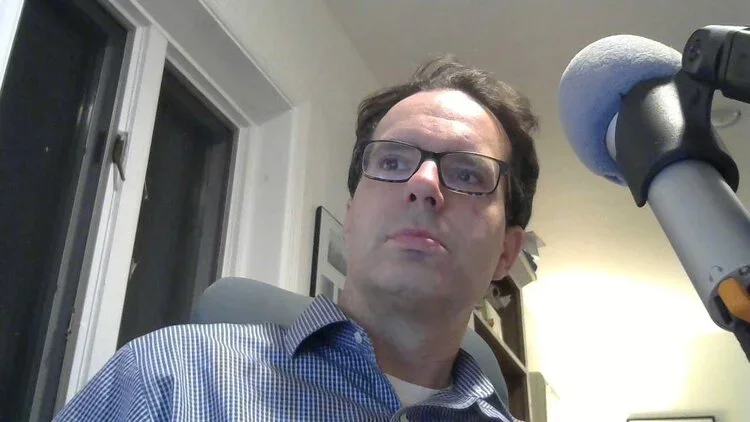
Adult improver. This phrase was largely unknown until the past few years. The first time I heard it was on Ben Johnson’s “Perpetual Chess” podcast. It’s since become rather ubiquitous. You hear it on podcasts, read it on Twitter in discussions amongst the #ChessPunks, and it comes up in casual conversations at the chess club.
Indeed, over the past half-decade, Ben Johnson has chronicled over three dozen interviews with adults of all ages and skill levels. While the inspiring point he has made is that we all can become adult improvers, there is a less alluring phrase that I believe should be getting attention as well: adult enjoyer.
The definition of an adult improver seems straightforward: an adult working to improve at chess. The definition of adult enjoyer seems a bit more amorphous. Is this someone who enjoys playing chess? Watching chess? Studying chess? All of those? Turns out that it depends on the person.
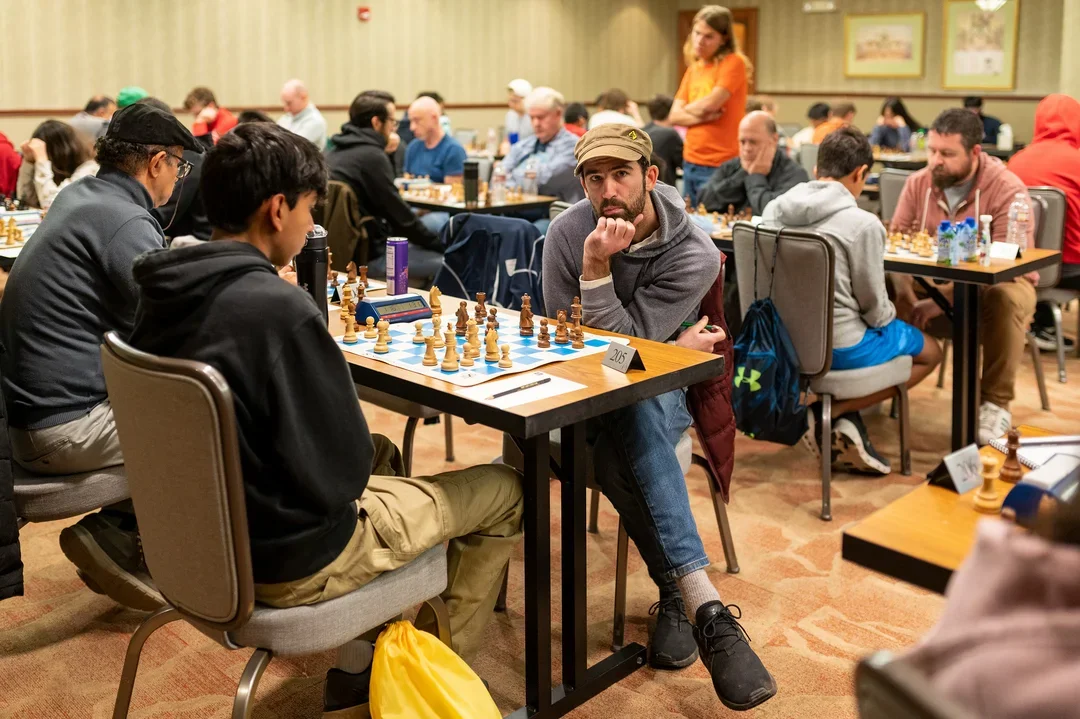
There are some players I see every week at the chess club for their weekly US Chess rated game. They never seem to study, or even analyze their own games. They don’t seem to care about such things. They enjoy playing for its own sake, and for them that’s enough.
Other players I know love to study chess. They don’t really care about their rating, they just love the process of studying and learning. They’re not results-oriented, rather choosing just to embrace the journey of learning while not worrying about any practical application.
Still others I know choose to watch high level chess tournaments and don’t play much serious chess any longer. Certainly, they aren’t spending their time studying. For them, watching chess is a reminder of a time when they were competing and working to improve.
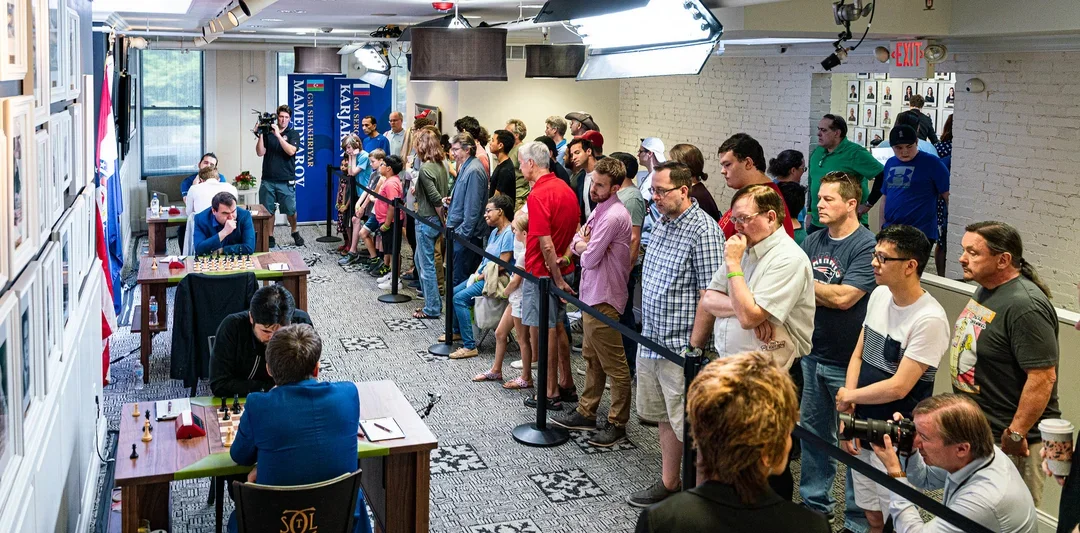
My own journey has taught me that it’s possible to move from the world of improver to that of enjoyer and back again. Along the way I’ve learned that there is no limit to the number of times that a person can switch between the two camps.
Currently I’m in the enjoyer phase. Right now, for various reasons — some family, some career, and some personal — I find myself not having the time to be truly obsessed with chess like an improver must be to maximize the chance for improvement. Caissa is a demanding mistress, and it’s hard to improve past a certain point without near total commitment. Some may argue with me here, but in my life, these are just the facts as I have observed them.
This doesn’t mean that I’m not still taking many of the same steps that I do when I’m on the improvement path. I still take occasional lessons from my coach, GM Elshan Moradiabadi. I still solve puzzles each day and enjoy playing through annotated games as time allows. It just means that when I do those things, I am not as concerned with any particular outcome related to the effort I put in.
One interesting side effect that has resulted from this switch in perspective is that I have been maintaining my level with relative ease. I started 2022 rated 1714, and I’m leaving it rated 1787. This is still well below my peak rating, so nothing about this increase is something that I consider to be improvement. Nevertheless, as I have joked several times with Elshan, somehow not obsessing about my results has helped me play rather consistently.
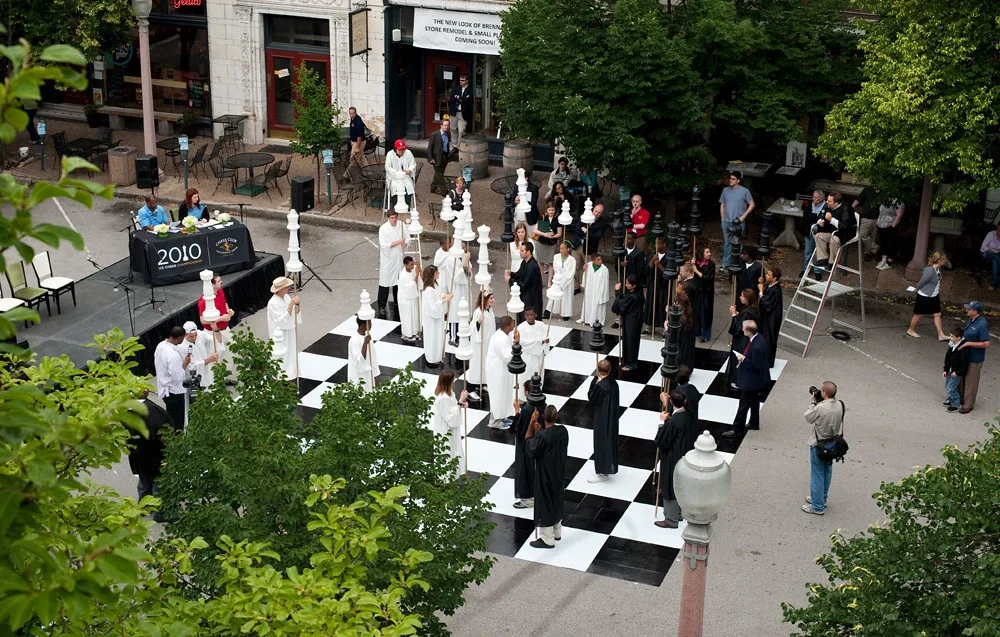
In 40 rated games in 2022, my record stands at 18 wins, 14 draws, and eight losses. The lowest rated player I lost to was 1761. It’s not that I didn’t care about my results, but rather that they weren’t the be-all and end-all of my focus. When I played, I played to win. I worked just as hard at the board as an enjoyer as I ever did as an improver. It’s what I did, or rather didn’t do, between games that defined me as one rather than the other.
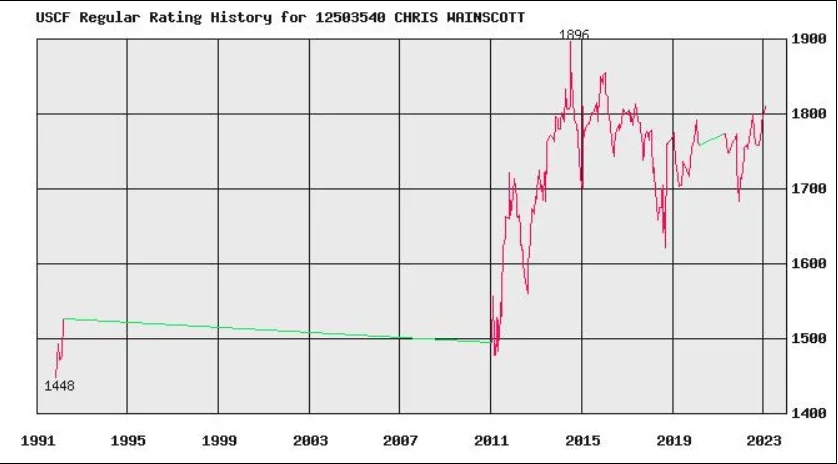
I didn’t spend hours each week working on openings or working through positions. I didn’t play through dozens of annotated games each month. Sure, at times I did some of those things, but not consistently. Instead, when I was looking at chess, it was more of an activity I was doing for the love of the game instead of work that I was doing to get better.
Are my days as an adult improver finished? I don’t know for sure, but I tend to think not. After all, I won’t always have the same level of work and business commitments that I do now. There will come a time in which I will have the ability to play more than I do now. The realist in my understands that I’ll be 50 in a little less than six months, but that doesn’t necessarily mean that improvement will be impossible. Will I ever become an IM or GM? Certainly not. But those weren’t goals for me anyhow. Can I become a national master? I still think that this is possible, but that it will involve a lot of sacrifice.
This is something that I think gets lost in the shuffle of improvement discussion. Can an adult improve? This discussion has answers that run the gamut. Most seem to think that either it simply can’t be done or that it unquestionably can be done, but few seem to discuss what sacrifices it takes to try in the first place. To me that’s the only real question. Can I improve? Perhaps. Would I have to give up quality time with my family or time to pursue other business or personal interests? Definitely yes.
Categories
Archives
- January 2026 (8)
- December 2025 (27)
- November 2025 (29)
- October 2025 (39)
- September 2025 (27)
- August 2025 (29)
- July 2025 (43)
- June 2025 (25)
- May 2025 (24)
- April 2025 (29)
- March 2025 (29)
- February 2025 (20)
- January 2025 (24)
- December 2024 (34)
- November 2024 (18)
- October 2024 (35)
- September 2024 (23)
- August 2024 (27)
- July 2024 (44)
- June 2024 (27)
- May 2024 (31)
- April 2024 (51)
- March 2024 (34)
- February 2024 (25)
- January 2024 (26)
- December 2023 (29)
- November 2023 (26)
- October 2023 (37)
- September 2023 (27)
- August 2023 (37)
- July 2023 (47)
- June 2023 (33)
- May 2023 (37)
- April 2023 (45)
- March 2023 (37)
- February 2023 (28)
- January 2023 (31)
- December 2022 (23)
- November 2022 (32)
- October 2022 (31)
- September 2022 (19)
- August 2022 (39)
- July 2022 (32)
- June 2022 (35)
- May 2022 (21)
- April 2022 (31)
- March 2022 (33)
- February 2022 (21)
- January 2022 (27)
- December 2021 (36)
- November 2021 (34)
- October 2021 (25)
- September 2021 (25)
- August 2021 (41)
- July 2021 (36)
- June 2021 (29)
- May 2021 (29)
- April 2021 (31)
- March 2021 (33)
- February 2021 (28)
- January 2021 (29)
- December 2020 (38)
- November 2020 (40)
- October 2020 (41)
- September 2020 (35)
- August 2020 (38)
- July 2020 (36)
- June 2020 (46)
- May 2020 (42)
- April 2020 (37)
- March 2020 (60)
- February 2020 (38)
- January 2020 (45)
- December 2019 (34)
- November 2019 (35)
- October 2019 (42)
- September 2019 (45)
- August 2019 (56)
- July 2019 (44)
- June 2019 (35)
- May 2019 (40)
- April 2019 (48)
- March 2019 (61)
- February 2019 (39)
- January 2019 (30)
- December 2018 (29)
- November 2018 (51)
- October 2018 (45)
- September 2018 (29)
- August 2018 (49)
- July 2018 (35)
- June 2018 (31)
- May 2018 (39)
- April 2018 (31)
- March 2018 (26)
- February 2018 (33)
- January 2018 (30)
- December 2017 (26)
- November 2017 (24)
- October 2017 (30)
- September 2017 (30)
- August 2017 (31)
- July 2017 (28)
- June 2017 (32)
- May 2017 (26)
- April 2017 (37)
- March 2017 (28)
- February 2017 (30)
- January 2017 (27)
- December 2016 (29)
- November 2016 (24)
- October 2016 (32)
- September 2016 (31)
- August 2016 (27)
- July 2016 (24)
- June 2016 (26)
- May 2016 (19)
- April 2016 (30)
- March 2016 (36)
- February 2016 (28)
- January 2016 (32)
- December 2015 (26)
- November 2015 (23)
- October 2015 (16)
- September 2015 (28)
- August 2015 (28)
- July 2015 (6)
- June 2015 (1)
- May 2015 (2)
- April 2015 (1)
- February 2015 (3)
- January 2015 (1)
- December 2014 (1)
- July 2010 (1)
- October 1991 (1)
- August 1989 (1)
- January 1988 (1)
- December 1983 (1)







